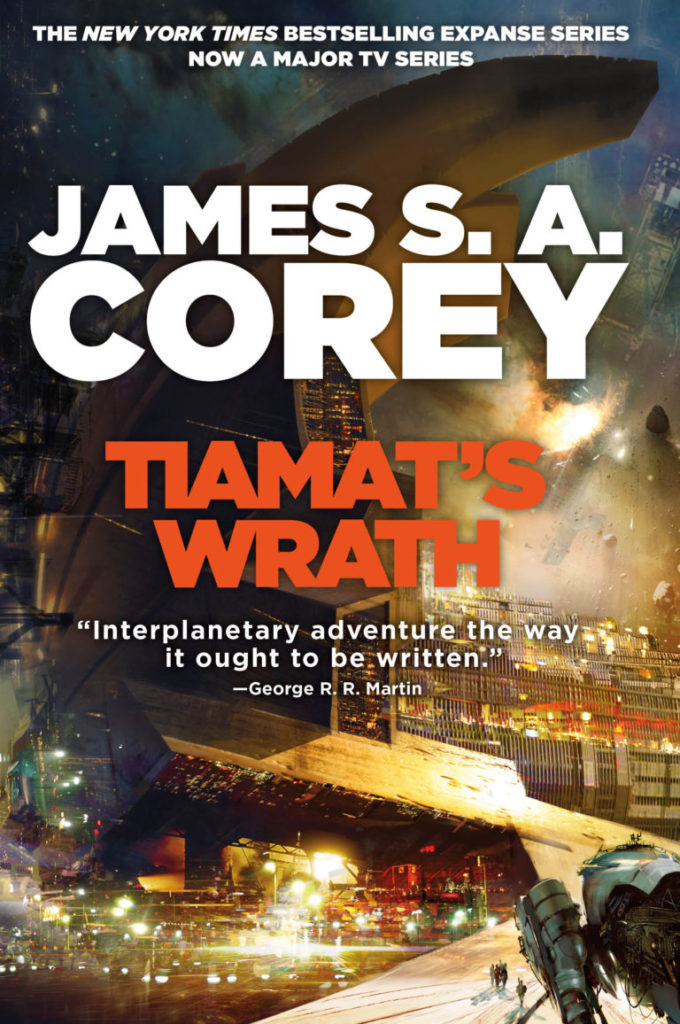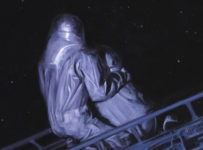
The Expanse is back. It may have been delayed four months, but four months is as nothing when you realise that fifty years of story time have passed since Leviathan Wakes was published in 2011. Tiamat's Wrath is the second entry in the third and theoretically final trilogy in the series, but it is not a bridge, it's a ramp: everything is dialled up to eleven in anticipation of book nine, and things are ready to explode. Tiamat's Wrath takes the reader on a wild, crushing journey, and is sure to upset devoted followers for all the right reasons.
A Laconian science team travels between the ring gates to perform tests with the protomolecule; Teresa Duarte learns that being the daughter of a dictator is like living in a gilded cage, and she wants to test the boundaries; in the Sol system, Naomi, Alex, and Bobbie work in the resistance.
Styled as a palace intrigue novel by the blurb, Tiamat's Wrath covers a lot of space besides. It opens with a sucker punch as the first sentence, an inevitability given the passage of time, and stretches across more vacuum than anyone could cover. The thing is that despite its obvious structural similarities with A Song of Ice and Fire, The Expanse is not merely about space politics: it's always been about space family (spamily, if you will; especially if you won't). The Rocinante crew, despite having been separated from each other and the Rocinante itself for years at this point, are still firmly intertwined, and we're here as much for them as the machinations of space.
Tiamat's Wrath boasts one fake out, but contains several other events that you will only wish were elaborate pranks. There comes a chapter where you can see exactly what is happening, what is going to come, and you can't look away. It's an elaborate heart breaker, and there's nothing that can be done about it. Inevitability is crueller but more fair than arbitrariness. The Expanse is not the sort of storytelling where a person gets wiped out by a space bus (unless that space bus was set very specifically into motion): they do what they have to do.
Corey has crafted a delicate character ecosystem over eight books, and it pays off. The modularity and interdependence are perfectly balanced, and Tiamat's Wrath is legitimately thrilling despite its constantly shifting scenarios — with the juggling act finally paying off with a superlative coalescence of elements, making for what feels like an almost literal space opera.
Tiamat's Wrath contains many significant events that are interesting in their own right while still lining up the ducks for the as yet untitled final entry in the series. Everything that has been escalated may finally come crashing down in 2020 and, unless Corey follows the trajectory of other recently concluded major franchises, it should be well worth the burn.


